Posters Awards
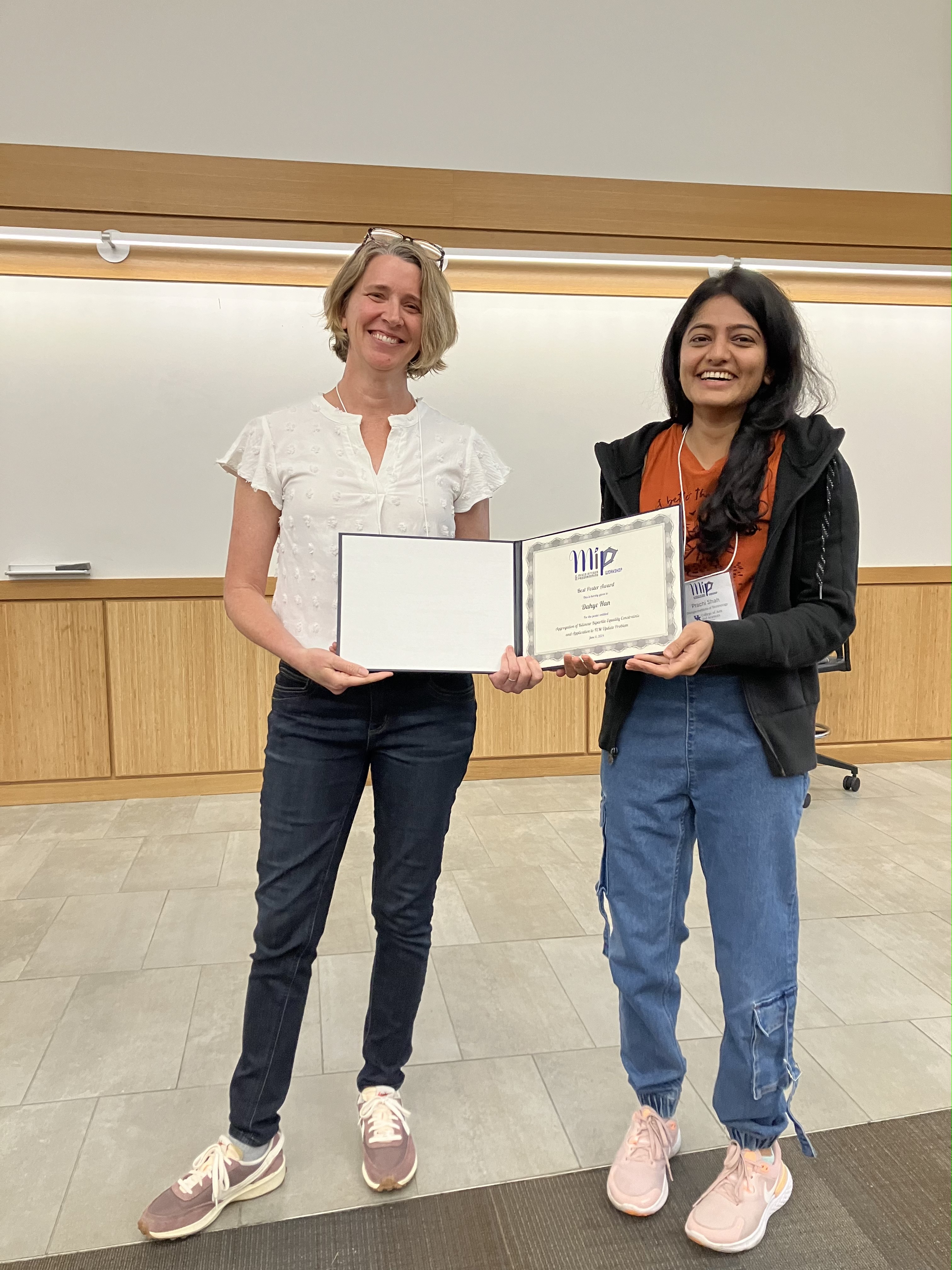
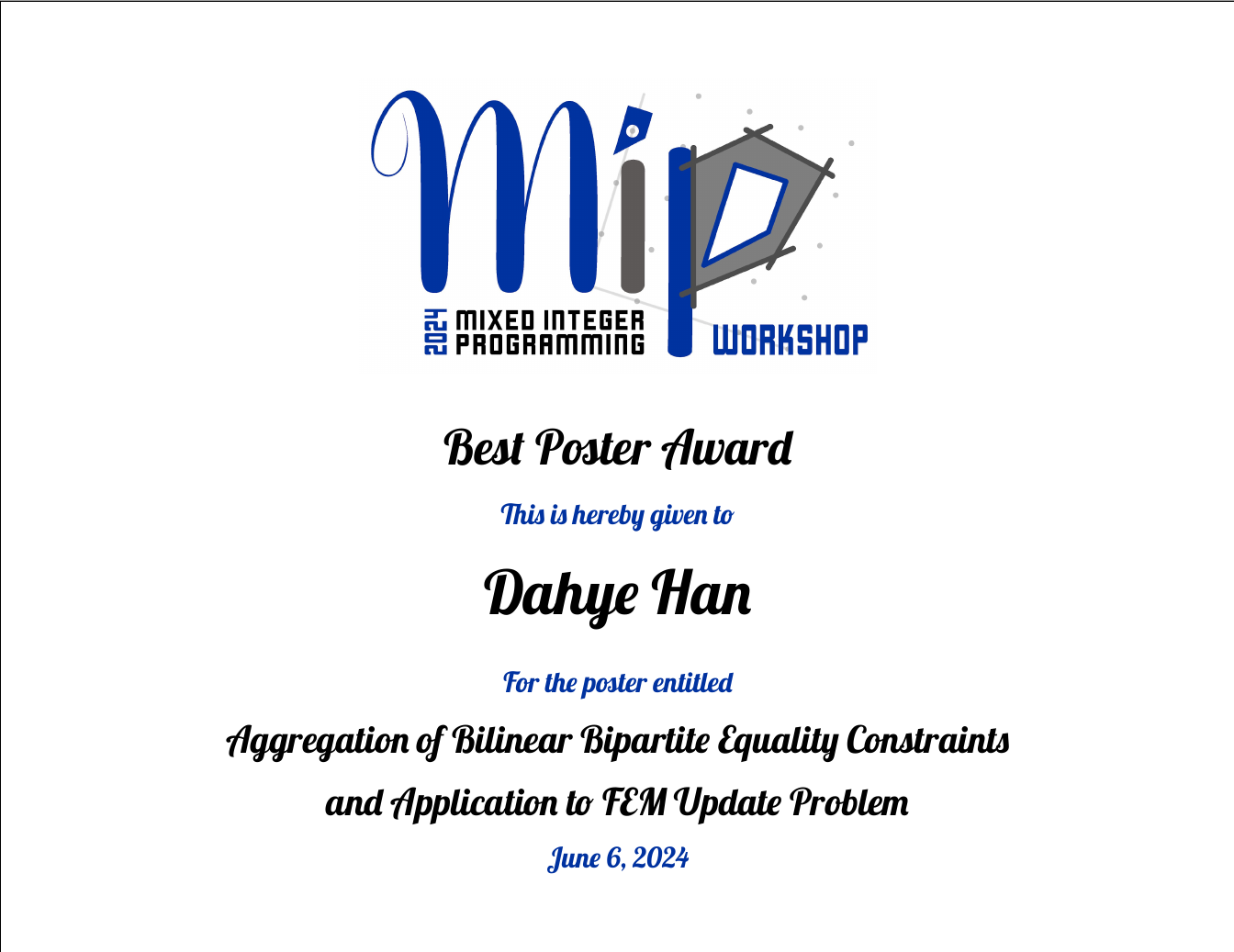
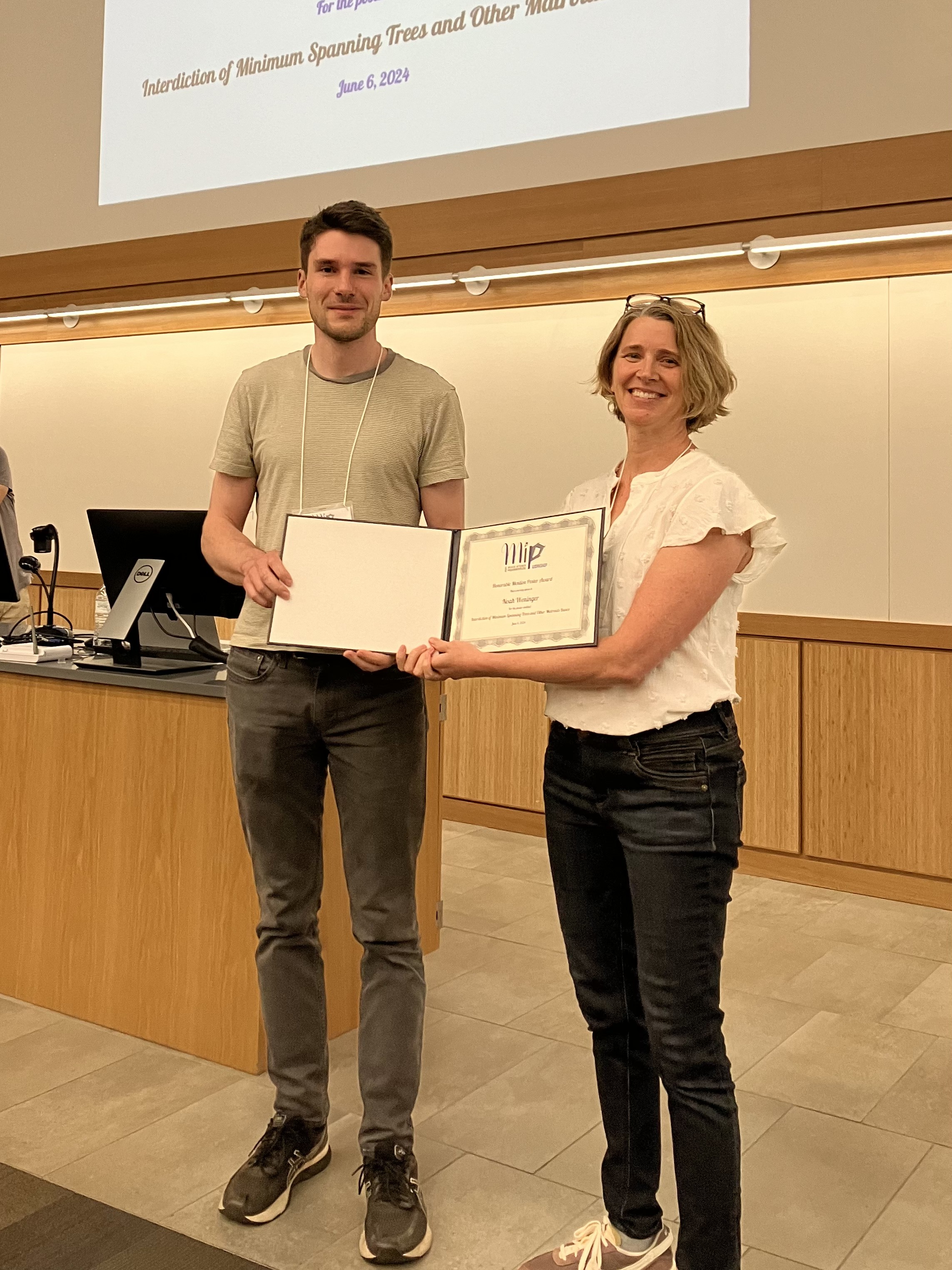
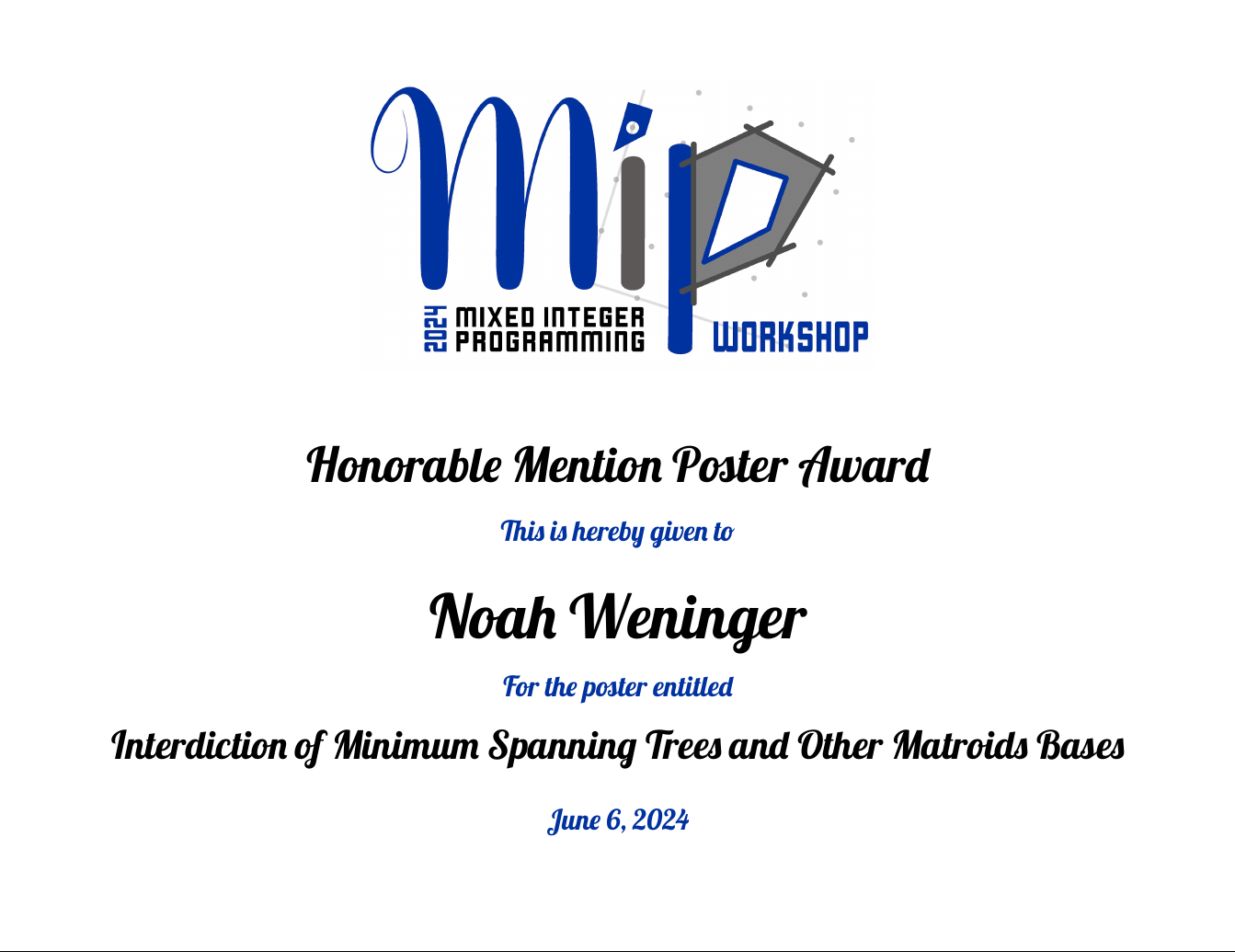
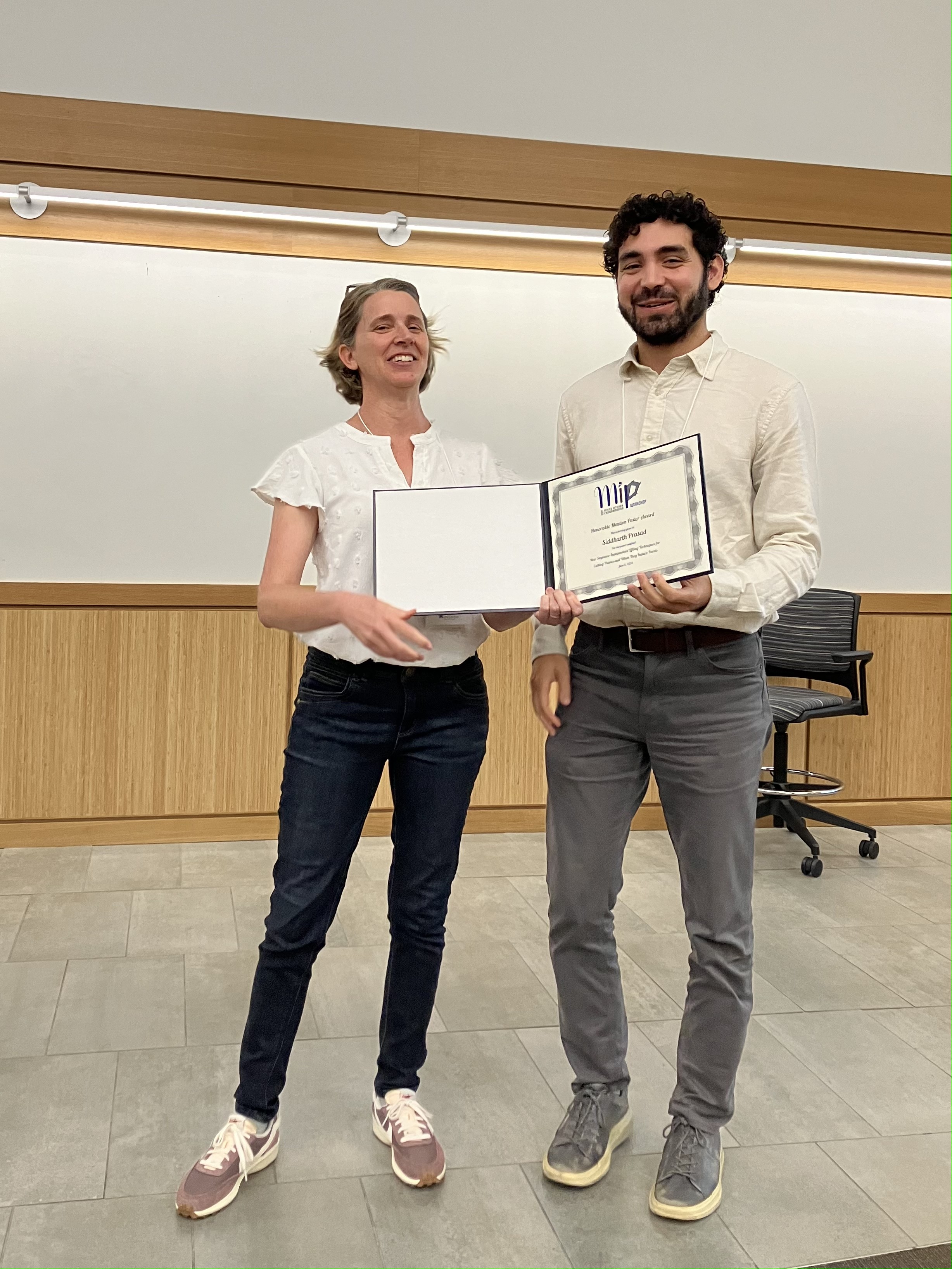
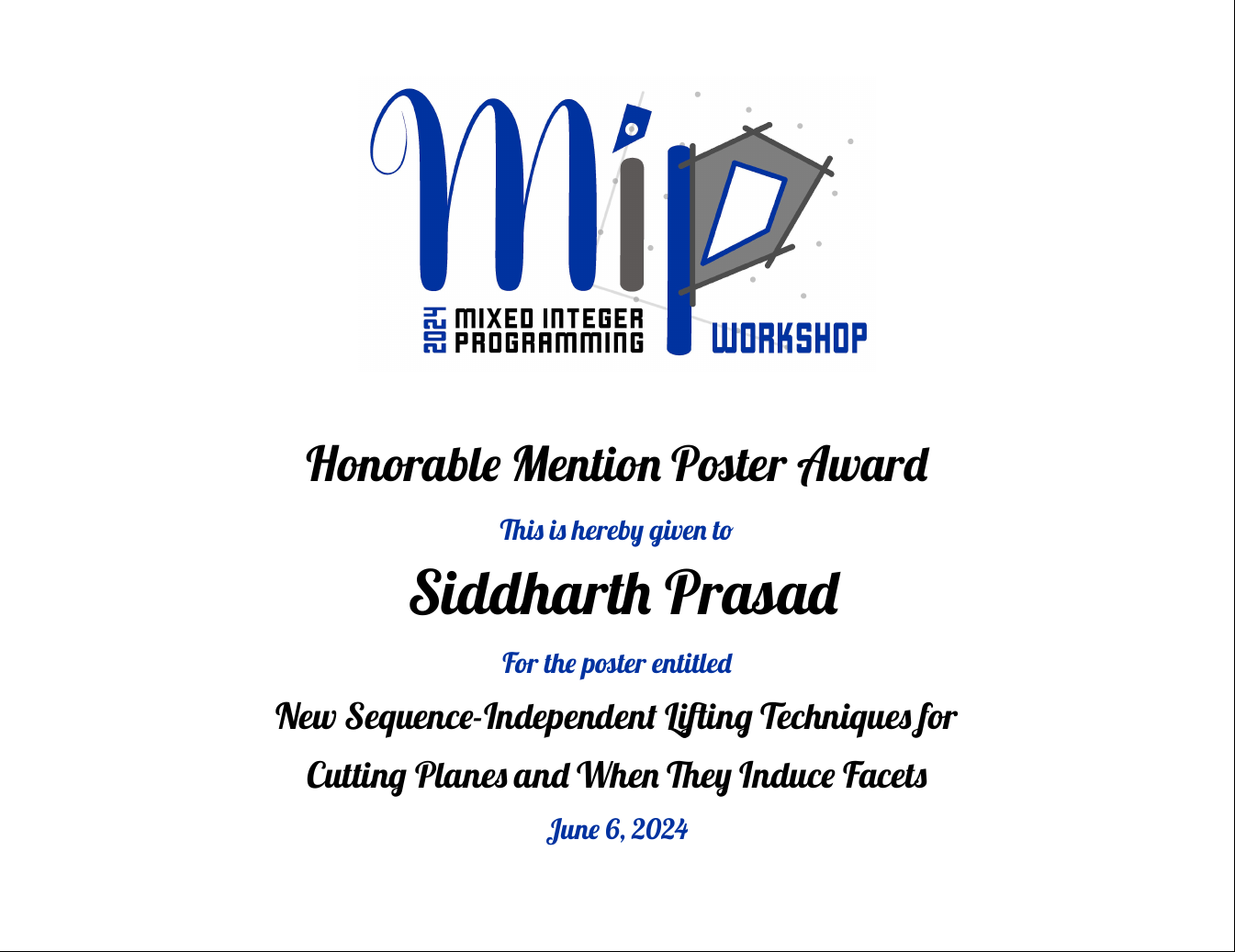
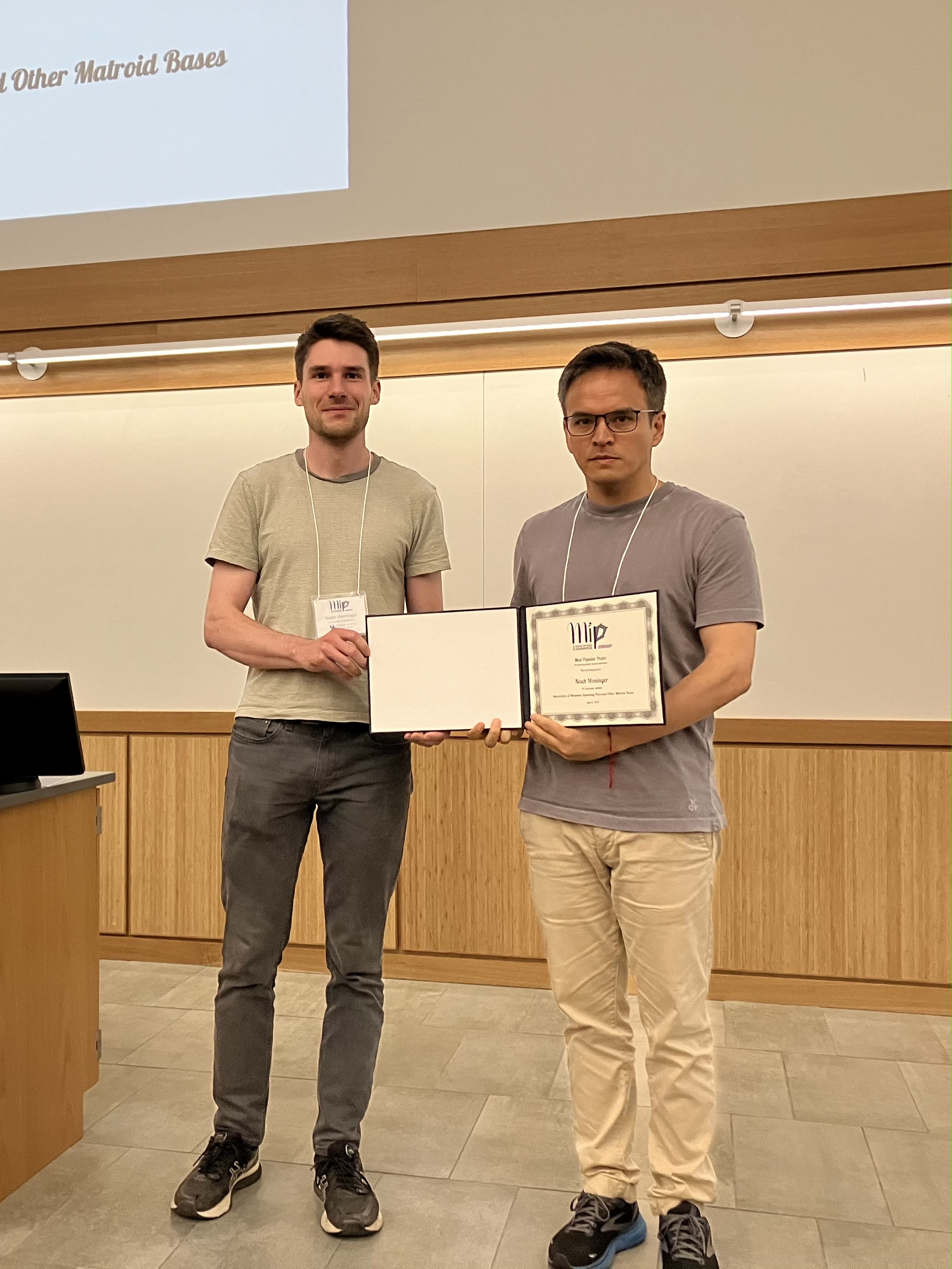
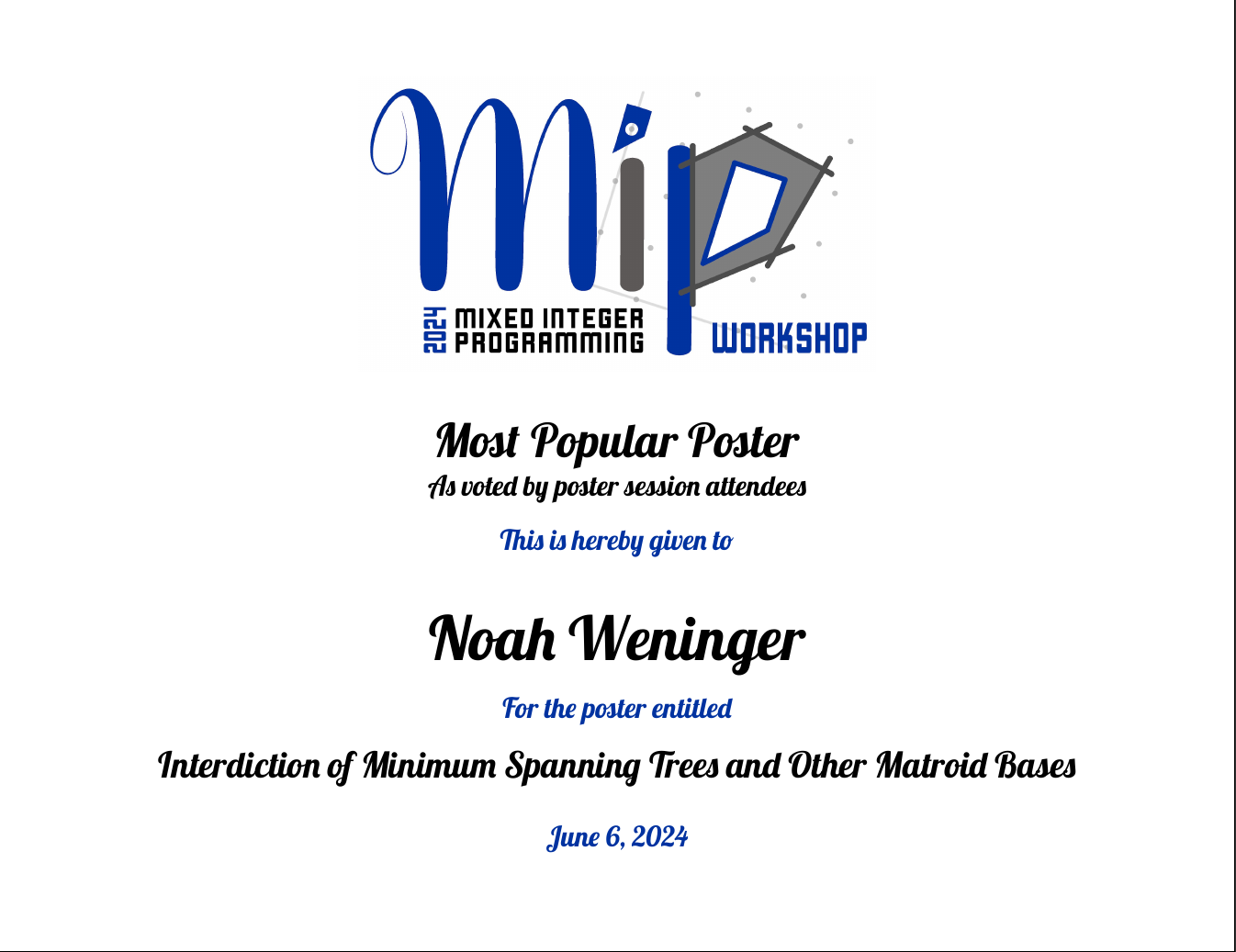
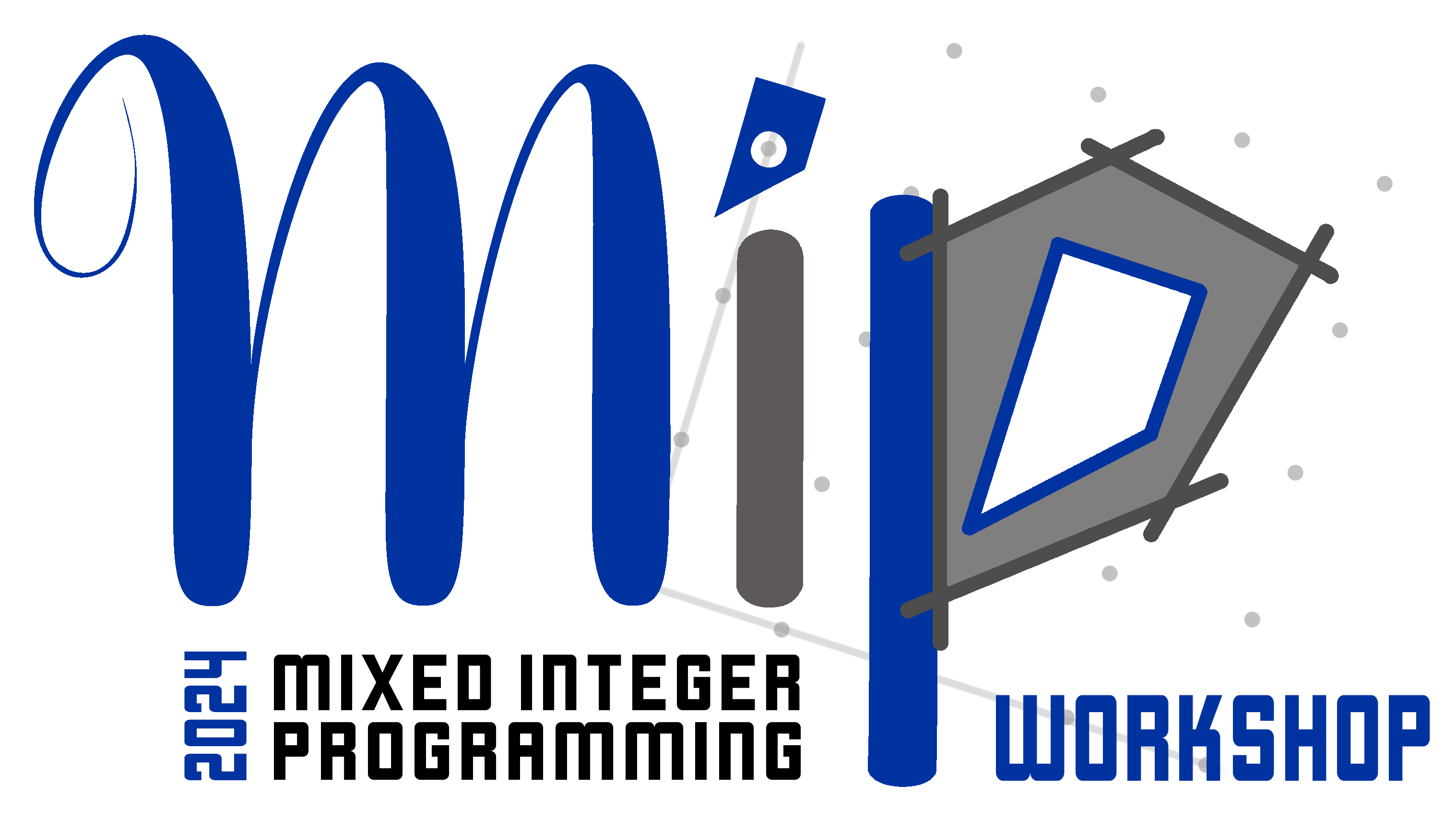
June 2, 2024 (summer school)
June 3-6, 2024 (regular workshop)
University of Kentucky
The 2024 MIP Workshop will include a poster session.
We invite poster abstracts to be submitted using this form. Poster abstracts from all levels are welcome, e.g., students, post docs, or faculty. However, due to space constraints, preference will be given to students. The abstract format is a PDF file of at most two pages (letter format, 1 inch margin, font size 12p, including references, tables, etc.). As in past years, the poster session will have a best poster competition, which is only open to student poster presenters. The program committee will select finalists for the best poster competition, and as in past years finalists will also be eligible for travel support funds (estimated at $500-$750 per selected finalist). Poster abstract submissions that are not selected as competition finalists may still present their poster (space permitting), but only finalists are eligible for the competition and for travel support.
The deadline for poster submissions is March 4, 2024 (11:59pm ET, check your local time), and the committee will communicate decisions by March 15, 2024.








Anna Deza - Logic Rules for Sparse Learning
Anthony Karahalios - A New Perspective on Subset Row Inequalities via Column Elimination
Ashley Peper - Selecting and Scheduling Cybersecurity Mitigations with Resource Constraints
Berkay Becu - A Machine Learning Approach for Rank-1 GMI Cuts
Connor Johnston - Symmetrically Fair Allocations of Indivisible Goods
Dahye Han - Aggregation of Bilinear Bipartite Equality Constraints and Application to FEM Update Problem
Erik Tamm - Warm Starting for Sequences of MINLPs
Hyunwoo Lee - Cooperative Integer Programming Games
Jack Zhang - Partitioning a graph into low-diameter clusters
Jingye Xu - Decentralized converging algorithm for binary optimization: Face-reweighted Lagrangian method
Jisun Lee - Strong Formulation of Hybrid Control Problem with Tridiagonal Inverse Matrix
Kausthubh Konuru - To Cut Or Not To Cut
Matheus Jun Ota - Benders cuts via corner polyhedra: an application to the stochastic vehicle routing problem
Matias Villagra - Accurate Linear Cutting-Plane Relaxations for ACOPF
Noah Weninger - Interdiction of Minimum Spanning Trees and Other Matroid Bases
Prachi Shah - Improving Strong-Branching Decisions With Additional Information
Qing Ye - Distributionally Fair Stochastic Optimization using Wasserstein Distance
Rolf van der Hulst - Detecting Implied Integers using Totally Unimodular Submatrices
Rui Gong - Rounding the Lovasz Theta Function with a Value Function Approximation
Seonghun Park - Distributionally Risk-Averse and Risk-Receptive k-Submodular Interdiction Problems
Shannon Kelley - Warm Starting of Mixed Integer Linear Optimization Problems via Parametric Disjunctive Cuts
Siddharth Prasad - New Sequence-Independent Lifting Techniques for Cutting Planes and When They Induce Facets
Somayeh Shamsi - Probabilistic Lookahead Strong Branching via a Stochastic Abstract Branching Model
Sourabh Kumar Choudhary - The Treewidth-Convex Hull Theorem and DP for Cut Generation in MINLP
Sumin Kang - Bi-Parameterized Two-Stage Stochastic Integer Programs
Woojin Kim - Layerwise Derived Valid Inequalities for the Binarized Neural Network Verification Problem
Yihua Xu - Stochastic Scheduling: Strategies for Abandonment Management
Yongchun Li - On Sparse Canonical Correlation Analysis
Yongzheng Dai - Parallelized Conflict Graph Cut Generation
Logo-Design by ©Julia Silbermann (Font-Credits: Cornerstone, by Zac Freeland). Website hosted at GitHub Pages, layout based on skeleton using Raleway font